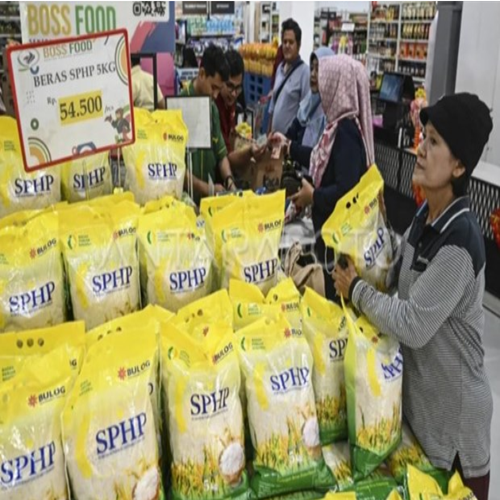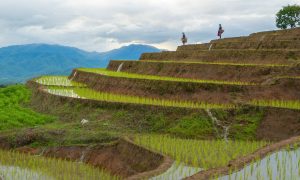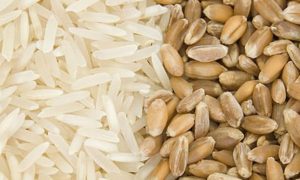No rice in Japan’s supermarkets. What led to the unprecedented shortage

Japan is experiencing a rice shortage due to panic buying amid fears of a “megaquake,” typhoons, and the Obon holiday. Supermarkets are running out of rice quickly, with daily stock depleting by midday. Contributing factors include lower harvests from hot weather, water shortages, and high demand from tourists. The government advises against panic buying and expects new harvests to resolve the issue by September.
People in Japan have resorted to panic buying amid threats of a “megaquake” and a series of typhoons, as well as a week-long holiday. The chaos has led to an unprecedented shortage of one of the country’s most beloved staple foods – rice.
As a result, the government on Tuesday warned people against panic buying.
“We could only procure half the usual amount of rice this summer and bags of rice get quickly sold out,” a clerk at a branch of the popular Fresco supermarket chain in Tokyo was quoted as saying by the AFP.
The worker added that daily rice stock usually runs out by midday everyday.
People started rationing rice in their homes after the government warned of a possible “megaquake” and several typhoons earlier this month. Another factor why shops across Japan ran out of rice or are facing rice shortages is the Obon holiday.
Apart from this, lower harvests caused by hot weather and water shortages, as well as increased demand related to record numbers of foreign tourists, also resulted in shortage of rice.
A sign at a grocery store in Tokyo stated, “In order for many customers to be able to buy, we ask you to purchase one (bag of rice) a day per family”.
Another worker from a Tokyo store was quoted by the news agency as saying that the store couldn’t purchase any rice and there was even no prospect of buying rice anytime soon.
The Japanese government warned people against panic buying of rice on Tuesday.
Farm Minister Tetsushi Sakamoto advised the people to stay calm and said that the shortage situation would be resolved soon.
The country saw the lowest stock of rice in June since 1999, when comparable data was first collected.
However, officials said the inventory is sufficient. “A new harvesting season has started with 40 per cent of the crop available by the end of September,” a farm ministry official told AFP.
To read more about the news about the Rice News continue reading Agriinsite.com















